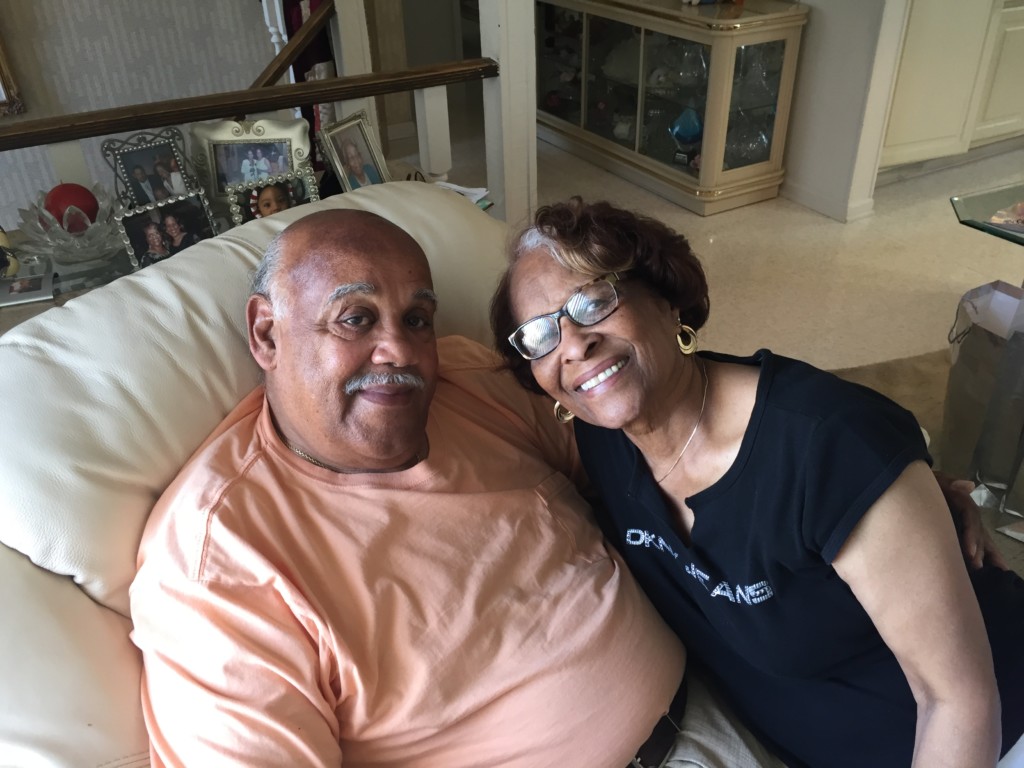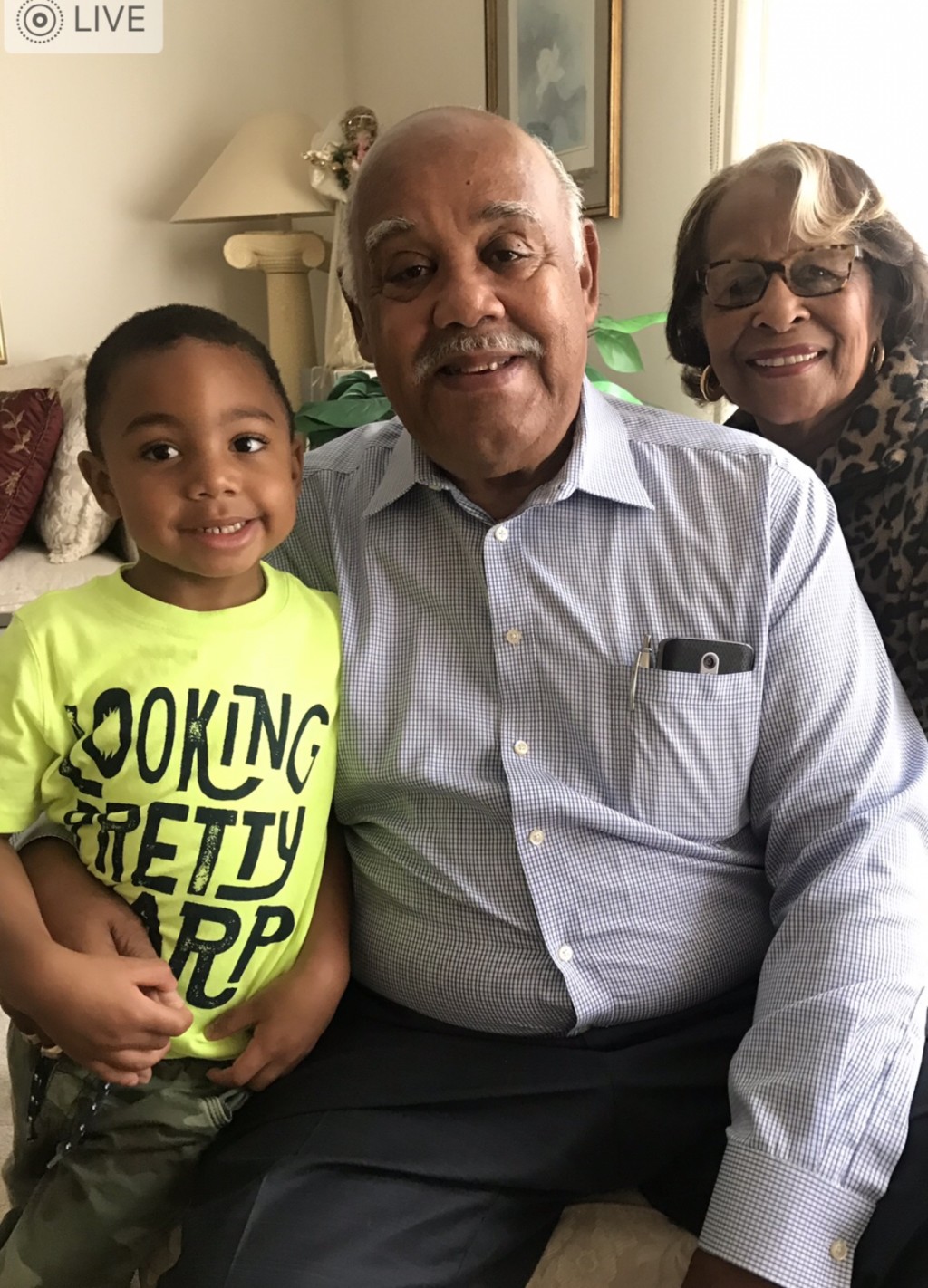The term ‘Sandwich Generation’ is used to reference adults, usually in their 30s and 40s, who are caring for their aging parents while bringing up their own children. This is Part One of a series of blog posts about life in the Sandwich Generation:
Life is Changing
Thankful doesn’t even begin to describe how I feel when I think of my parents. I’m so glad at 79 and 80 my father and mother are still alive and active. My father goes to the YMCA, attends meetings, and hangs out with friends. Heck, his social life is more on-point than mine! My mom, although more low-key than Dad, attends church functions, lunch with friends, and keeps the house together.
Their presence in our life is an incredible blessing. There is so much to learn from them about life, working hard, sacrifice, and love. The 90-minute drive each week to check on them, hang out for a bit, and allow them one-on-one time with our son (aka: free child care) is more than worth it.
Nevertheless, going back to my childhood home is both comforting and, at times, difficult. The familiarity of home provides great memories, but the changes are evident. My parents are growing older and, with that, comes health challenges, important decisions, and a gradual change in the roles we play. As my brother and I grow into our role as caretakers, we are both honored and challenged.
A Little One in the Mix
And then there is my full-of-energy, talkative, head-strong, and hilarious preschooler who usually makes the weekly visit to my parents’ house with me. He brings joy with him on his trips to Grammy and Poppy’s house. As he entertains them, they also entertain him with reading, rides on his blanket, watching cartoons, and snuggles on the couch. Their role in my life and now in his has been not only valuable but a necessity. Apart from my husband and me, they are his biggest nurturers and supporters, and in return, they share in the joy of his presence.
The Demands
My role as wife, mother, and daughter are so different and yet both require physical and mental energy, time, and effort to keep afloat. Working full-time, spending time with my husband, caring for a preschooler, and balancing a growing role in the care of my elderly parents have made me an official member of the ‘Sandwich Generation.’
The Sandwich Generation
I know there are many who do far more than me. They manage multiple activities, doctor appointments, and needs of both their children and parents, all while managing to stay sane! I realize more than ever that now is the time to start important conversations, get questions answered, and find out the wishes of those you love. I challenge you to get started. It’s hard but so worth it.
Below is a list of topics our family is starting with. I expect these questions will lead to more frequent and deeper conversations. Our hope is to make decisions that everyone will be pleased with and to minimize the stress that could be involved with making these decisions.
Living arrangements
Where will your parents live? Will they live alone or in a facility? And, of course, who will they live with? If with you, do you have enough money set aside to support them? For many seniors, their home is a place of security and familiarity. Disturbing a senior’s home can be detrimental both physically and mentally. And at the same time, staying can be difficult because of the work needed to care for a home or the safety risks of navigating stairs and other potential challenges.
Finances
One of the tougher topics. Do you know what bills they have and how they’re being paid? Have your parents done estate planning? Do they have life insurance? If so, you should review the beneficiaries with them. How will their expenses be handled? Where are their accounts and what investments do they have? Finances are so sensitive and personal, and often seniors may not want to disclose debt or other personal choices they’ve made that may affect their finances.
Burial plans
In most cases, our parents will pass on before us. Do you know your parents’ burial plans? Do they want to have a traditional funeral service, and what are their burial wishes? This is such a sensitive topic because it forces us to face our mortality, but when discussed before critical times, the stress is lessened.
Health care
Who is their doctor? Have a list of their current medications, so you can accurately communicate with medical providers. Lastly, how do your parents describe quality of life? Do they want to be resuscitated, on a ventilator, or other extreme measures to sustain life? We all define life and quality of life differently. Knowing these answers will help you make better decisions on behalf of your parents.
I always say peace of mind goes a long way. You might be a part of the ‘Sandwich Generation,’ but it doesn’t have to consume you. Get your questions answered now, so you can make informed decisions later. We love our parents and consider it an honor to care for them. My hope is that we not only do it, but do it well.













